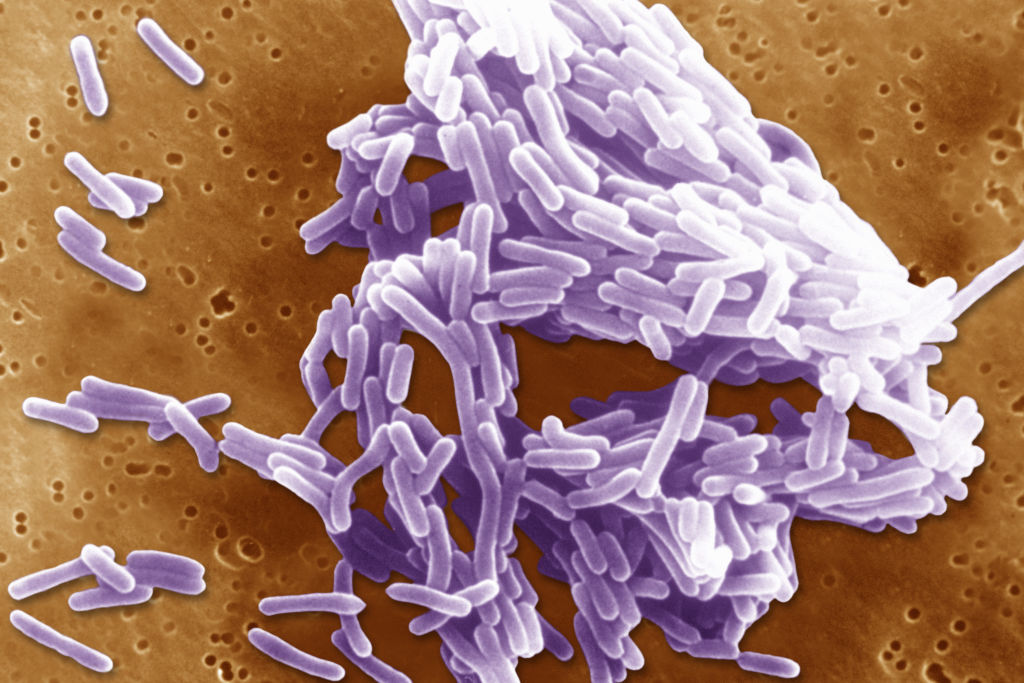Major recalls from two well-known ice cream companies due to the discovery of listeria bacteria raise questions about how the pathogen could have contaminated multiple ice cream manufacturing plants — and whether the discoveries are related.
Blue Bell Creameries of Texas and Jeni's Splendid Ice Creams of Ohio — extremely popular brands in their home states — took all their products off shelves this week. Blue Bell ice cream is linked to 10 illnesses in four states, including three deaths. There are no known illnesses linked to the Jeni's recall, according to the Centers for Disease Control and Prevention.
The recalls are unusual: Listeria is rarely found in ice cream because it can't grow at freezing temperatures.
"At this time, the FDA does not believe that the finding of listeria in one sample of Jeni's Splendid Ice Creams is related to the outbreak and recall associated with Blue Bell Ice Cream," said Food and Drug Administration spokesman Jeff Ventura. "We are continuing to investigate both situations and will provide updated information to consumers as we learn more."
John Lowe, Jeni's CEO, said in a statement on the company's website that it is working with its suppliers to determine if the listeria was introduced by one of the ingredients the company uses. The company said Thursday it is recalling all ice creams, frozen yogurts, sorbets and ice cream sandwiches and temporarily closing retail stores.
"We will not reopen the kitchen until we can ensure the safety of our customers," Lowe said in the statement.
The Nebraska Department of Agriculture discovered the listeria in a random sample of Jeni's ice cream from a Whole Foods store in Lincoln. Jeni's said the recalled ice cream was distributed in the United States to retail outlets, including food service and grocery stores, as well as online at jenis.com. The recall includes all products bearing the brand name "Jeni's."
U.S. & World
Also Thursday, Blue Bell said it will close its facilities in Texas, Oklahoma and Alabama for intensive cleaning. The plants will be closed next week and possibly into the following week, a spokesman said. Blue Bell did produce some ice cream in its plants this week, but that product will be used for testing and data gathering and won't be sold to the public.
The FDA said it still has open investigations in all three plants and will evaluate Blue Bell's progress in removing listeria from the plant and its products.
Speaking earlier this week about the listeria outbreak linked to Blue Bell products, the CDC's Dr. Robert Tauxe said the discovery is a "wakeup call" for the ice cream industry. Listeria is commonly found in processed meats, unpasteurized cheeses and unpasteurized milk. Listeria in cantaloupes was linked to 30 deaths in a 2011 outbreak.
The bacteria is found in soil and water and it can be tracked into a manufacturing facility, carried by animals or spread by employees not using proper sanitation practices. It can be very difficult to get rid of once it contaminates a processing facility, partly because it grows well in refrigeration.
Listeria generally only affects the elderly, people with compromised immune systems and pregnant women. It can cause miscarriage, stillbirth and premature labor for women and serious illness or death in newborn babies. Healthy, younger adults and most children can consume listeria with no ill effects or only mild illness.



